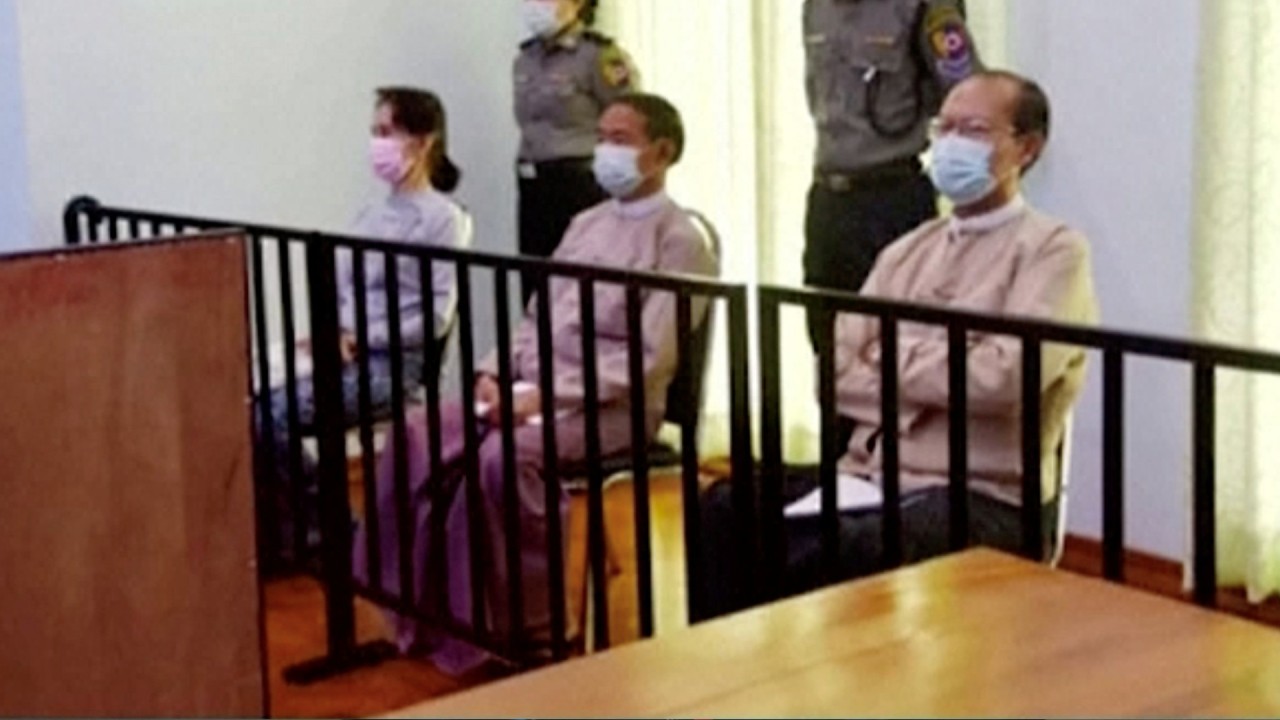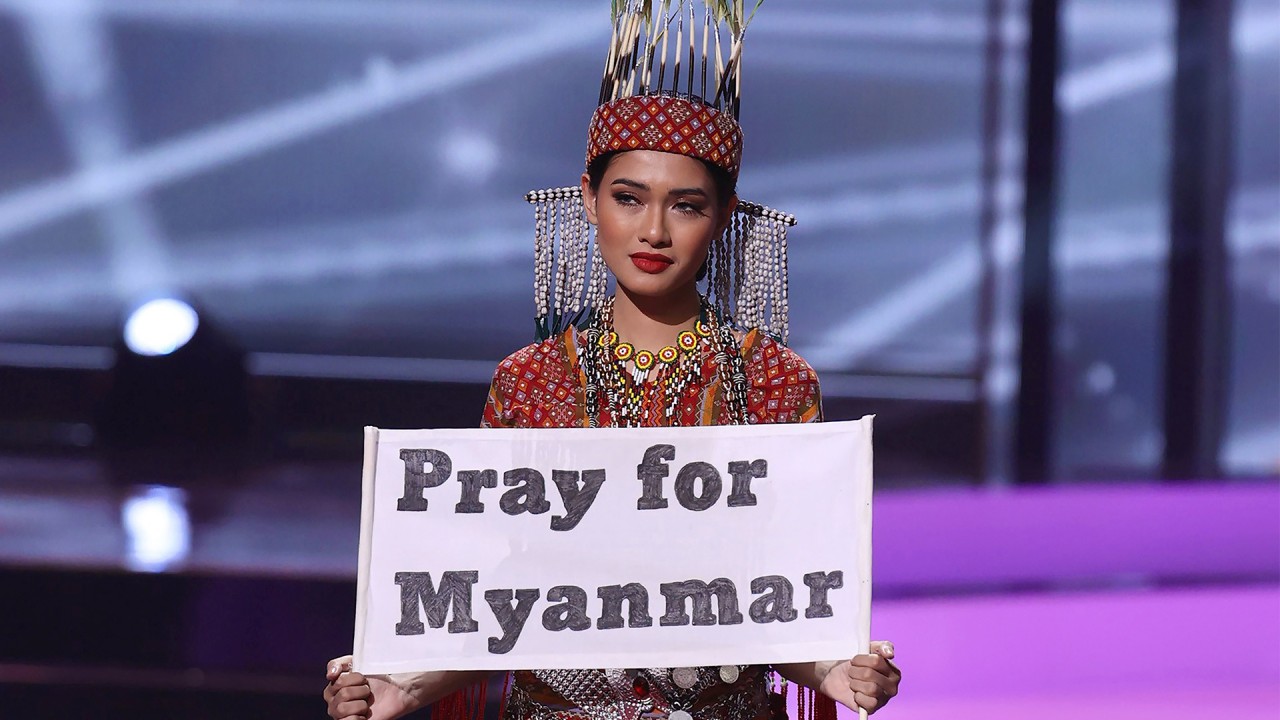[ad_1]
In an interview with China’s state-linked Phoenix Television that aired this week, the junta chief was asked if his administration was “not ready” to implement the plan.
In response, he replied: “Correct”.

01:49
Aung San Suu Kyi makes first court appearance since coup as Myanmar violence continues
In her comments, Burgener noted that Min Aung Hlaing had said a day after the April 24 meeting that he would only consider the consensus plan after the situation in Myanmar was stable.
The envoy has been based in Bangkok for the past seven weeks in the hope that the junta will allow her to enter the violence-hit country.
Burgener said she spoke with Min Aung Hlaing at the sidelines of the Jakarta meeting, but the senior general had told her then that “it’s not the right time to come to Myanmar”.
She said she remained eager to offer her assistance to get the military and the ousted National League for Democracy party to the negotiating table. The former top Swiss diplomat was scheduled to arrive in Japan on Tuesday to meet Foreign Minister Toshimitsu Motegi.
Burgener said she was also ready to hold talks with Beijing, seen as a key stakeholder given its strong links with the junta and sizeable economic presence in Myanmar.
Within the region, prominent commentators have voiced concern over Asean’s lack of response to Min Aung Hlaing’s demurring on the five-point consensus.
Representatives from Brunei, the current Asean chair, were earlier expected to visit Myanmar after the Islamic holy month of Ramadan which ended on May 12.
The kingdom has yet to announce such plans.

01:59
‘Pray for Myanmar’: Miss Universe contestant with political statement wins best national costume
Thai observer Kavi Chongkittavorn said in a commentary published in The Irrawaddy news website this week that the junta had yet to fix dates for the proposed visit by the Brunei representative and Lim Jock Hoi, Asean’s current secretary general.
He said the announcement of the Asean special envoy and members of the task force for humanitarian assistance would not be made until that visit.
Barry Desker, a former senior Singaporean diplomat, wrote in a commentary on the East Asia Forum portal that the 10-nation Asean bloc was facing a dilemma with Thailand, Vietnam, Cambodia and Laos advocating for accepting Min Aung Hlaing’s February 1 coup “in line with Asean’s traditional focus on non-interference”.
On the other hand, Malaysia, Singapore and Indonesia have condemned the military’s use of force against unarmed anti-coup protesters.
More than 810 people have been killed in crackdowns by security forces on demonstrations across the country, according to the human rights monitor Assistance Association for Political Prisoners.
Desker, the former dean of Singapore’s S. Rajaratnam School of International Studies, sounded a pessimistic note about de-escalation, saying instead that external players had limited leverage to persuade the Tatmadaw – as the Myanmar military is known – to alter its plans.
“The Tatmadaw will implement its hard-line domestic policy aimed at rooting out critics and crushing its opponents, while hoping that the current international and regional criticism of its actions dies down,” Desker wrote.
He added that the current conundrum was a reminder that “Asean is paying the price for including Cambodia, Laos, Myanmar and Vietnam between 1995 and 1999 without any conditions, following the end of the Cold War”.
Under the Asean Charter, the grouping’s de facto constitution agreed upon in 2007, there is no avenue to enact punitive measures against a member state without the consensus of the entire bloc.
“Today, Asean’s influence lies in its capacity to persuade the Myanmar military authorities, not in the presence of rules which may or may not be enforced,” Desker said. “This will be a long game and a testing time for Asean.”
[ad_2]
Source link